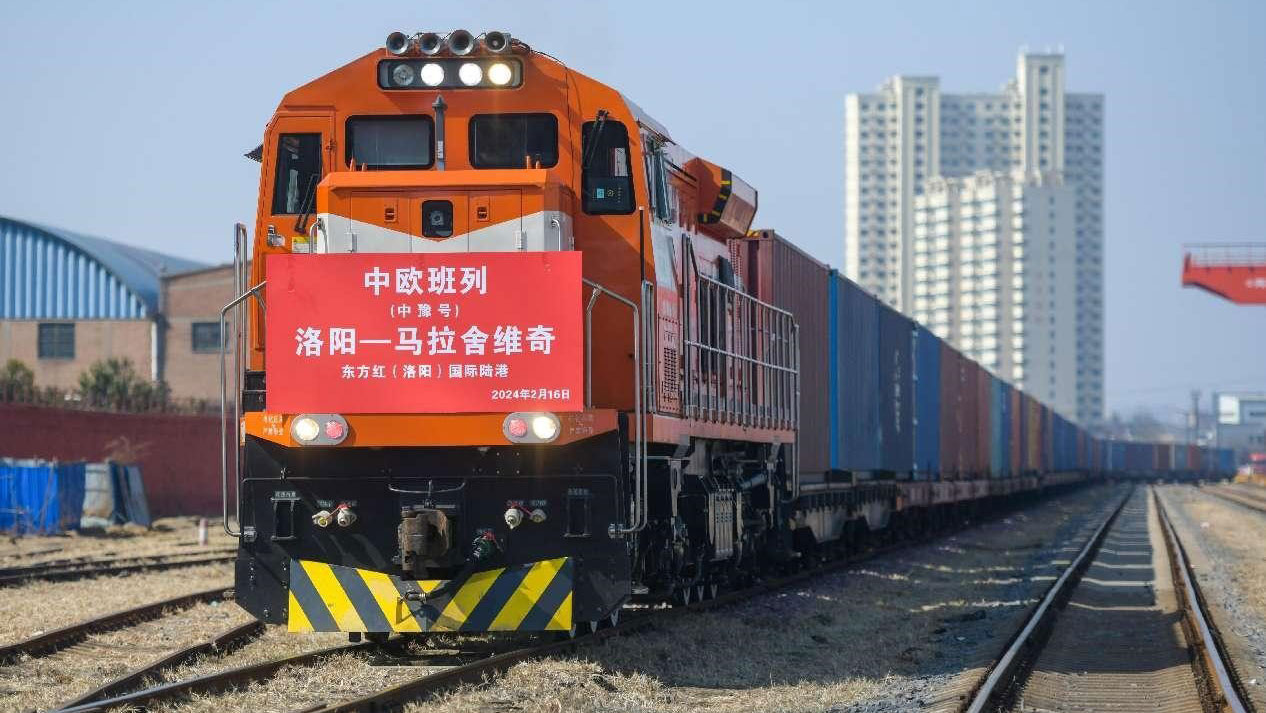Interview: China's stable economic growth crucial to boosting global economy: Cambodian scholar
PHNOM PENH, March 26 (Xinhua) -- As the global manufacturing hub and the stabilizer of global value chains, China's stable economic growth is essential to driving the global economy, a Cambodian scholar said on Tuesday.
Speaking to Xinhua ahead of the Boao Forum for Asia (BFA) Annual Conference 2024 scheduled for March 26-29 in the resort town of Boao, southern China's Hainan Province, Kin Phea, director-general of the International Relations Institute of Cambodia, said the Chinese economy has been steadily recovered with solid progress in high-quality development and resilience.
He cited the fact that in 2023, China witnessed a gross domestic product (GDP) growth of 5.2 percent.
"China's stable economic growth is a great boon not only to China itself but also to the rest of the world, particularly to poor and developing countries," he said.
"China has always shared its fruit of economic growth with the rest of the world through a number of global initiatives such as Belt and Road Initiative, Global Development Initiative, Global Security Initiative, and Global Civilization Initiative, among others," he added.
Phea believes China's economic growth target of 5 percent this year is achievable.
"China has adhered to the general principle of seeking progress while maintaining peace, security and stability, and fully and faithfully applying new development philosophy on all fronts," he noted.
The scholar added that China has accelerated the efforts to foster a new pattern of development, comprehensively deepening reform and opening up, strengthening macro regulation, and redoubling efforts to expand domestic demand.
Sharing his view on the concept of "new quality productive forces," Phea said the concept perfectly aligns with the rapidly evolving digital era.
"This concept introduces a fresh paradigm of production forces, fueled by groundbreaking technological advancements, innovative distribution of production factors, and profound industrial transformations and modernization," he said.
It suggests a substantial increase in overall productivity, with the key pillars of this concept encompassing workers, tools, work objects, and their optimal combinations, he said.
"These new technologies, industries, and business models will not only bring forth new opportunities and transformations to reshape China's economy but also have a broader impact on the economic landscape of the Asian region," Phea said.
He called for collaboration between China and other Asian countries, saying, "Most importantly, this collaboration will contribute to the promotion of economic globalization and a unified response to challenges faced by the world economy."
As China saw its innovation index lift by three places in 2023 and became the only developing country among the top 10, Phea said China's innovation capability, which has been in a steady progress, does not come as a surprise.
The rise in Chinese technology clusters can be attributed to China's efforts to enhance the development of regional and global technological innovation, he said.
"It is commonly acknowledged that China has achieved significant progress in various sectors such as new energy, high-speed rail, modern information, new materials, and artificial intelligence, leading to robust growth in related industries and products," he added.
Talking about the global challenge of climate change, the scholar said China's economy has made significant strides in both digitalization and green development, and that sectors like solar photovoltaics, electric vehicles, and lithium batteries have shown impressive export performance.
"This can be seen in China's strong commitment to tackling climate change and global warming," he said. "These achievements positively and indispensably contribute to the global joint efforts to achieve the United Nations Sustainable Development Goals (SDGs)."
Photos
Related Stories
- Feature: Work on Chinese-built airport for Cambodian capital in full swing, with operations expected by mid-2025
- Young Chinese vlogger strengthens China-Cambodia friendship
- Chinese vice president meets Cambodian King, Queen Mother
- China, Cambodia agree to promote military cooperation
- 66.1 pct of work on Chinese-built new airport for Cambodian capital completed: PM
- Cambodia-China university of technology, science starts first undergraduate program
Copyright © 2024 People's Daily Online. All Rights Reserved.









